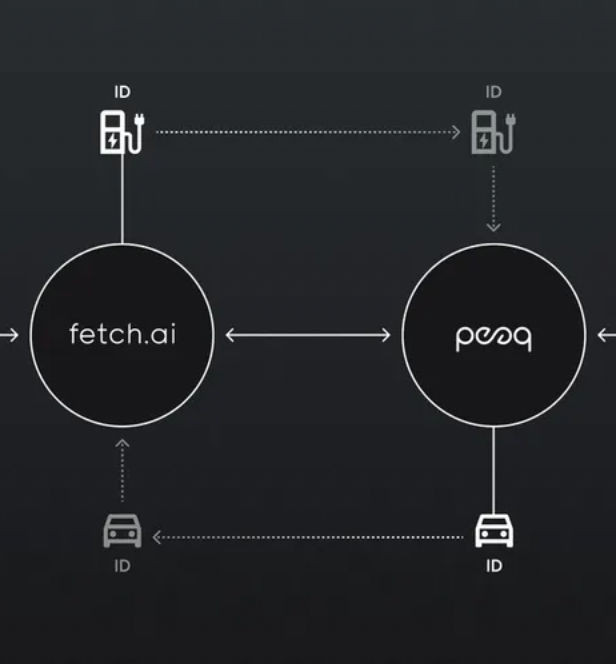Blockchain
peaq, the Web3 network specializing in the Economy of Things, has partnered with Fetch.ai, an innovative platform that combines automation and AI capabilities, to introduce multi-chain Self-Sovereign Machine Identities. These identities will facilitate data exchange and identification between vehicles, robots, and devices on the Polkadot and Cosmos ecosystems. By leveraging Fetch.ai’s autonomous AI agents, peaq enables decentralized data exchanges across its layer-1 blockchain within the Polkadot ecosystem and Fetch.ai’s blockchain within the Cosmos IBC ecosystem.
—
The collaboration addresses the challenge of limited interoperability within the Web3 space, where standalone blockchains often hinder seamless connectivity. However, projects like Polkadot and Cosmos have emerged as pioneers in native interoperability, striving to create a more connected and open Web3 environment.
The introduction of multi-chain Machine IDs on peaq takes this interoperability effort further by enabling decentralized data exchanges between the two multi-chain ecosystems.
This functionality is made possible through a decentralized address book integrated into peaq’s storage pallet. When creating a Machine ID on peaq, users can choose to add their address to this address book.
By doing so, an autonomous agent is generated on Fetch.ai’s Agentverse, and its address and wallet in the Cosmos IBC ecosystem are added to the address map on peaq along with the machine’s peaq ID. The agent continuously queries the peaq blockchain to collect any associated data from the address on peaq that corresponds to its Cosmos address on the address book.
This process allows for multi-chain data exchanges among vehicles, robots & devices on the Polkadot and Cosmos ecosystems.
This innovation aligns with peaq’s vision of a multi-chain Economy of Things spanning various blockchain ecosystems. It enables broader Economy of Things interoperability through multi-chain machine communication and interactions. For example, an electric vehicle on a Cosmos blockchain can discover available charging stations on peaq.
Other potential use cases include decentralized energy grids, shared autonomous vehicles, supply chain management, and healthcare systems.
Multi-chain Machine IDs may also facilitate multi-chain crowdfunding of fleets of connected vehicles, robots & devices through peaq’s Machine DeFi suite.
Additionally, they open doors for multi-chain identity management and transactions involving multiple identities across multiple blockchains.
These advancements position peaq as the multi-chain hub for decentralized physical infrastructure networks (DePINs) across the Polkadot and Cosmos ecosystems. Access to the multi-chain Machine IDs will soon be available through peaq’s SDK, simplifying their deployment for developers.
Collaboration is deemed essential in the Web3 space, as highlighted by Maria Minaricova, Director of Business Development at Fetch.ai. By bridging the Polkadot and Cosmos ecosystems, multichain communication across devices can unlock significant value for all stakeholders involved.
Till Wendler, co-founder of peaq, emphasizes the importance of a multi-chain future for the Economy of Things and Web3 as a whole. The introduction of multi-chain Machine IDs represents the first step towards this vision, offering limitless opportunities for developers in both ecosystems.
The integration of peaq IDs and Fetch.ai’s Autonomous Agents aims to create a fragmented-immune Economy of Things.
—
About Fetch.ai
Fetch.ai provides the infrastructure for smart, autonomous services, enabling the building, deployment, and connection of smart agents that automate web3 systems and revolutionize business models. These agents possess the ability to learn, predict, and execute meaningful real-world tasks. Fetch.ai empowers users to explore agent technology and redefine how we live and work.
About peaq
peaq is a Web3 network focused on powering the Economy of Things (EoT). As a layer-1 blockchain, peaq enables entrepreneurs and developers to build decentralized applications and DePINs for vehicles, robots, and devices, while allowing users to govern and earn as connected machines provide goods and services.
Working alongside prominent consortia such as Gaia-X, peaq actively contributes to the development of standards that will drive the future of mobility and other interconnected industries. The ultimate goal is to democratize abundance in the Age of Automation.
For more information about peaq, visit their official website or join their Discord community. Stay updated on the latest news and developments by following peaq on Twitter.



